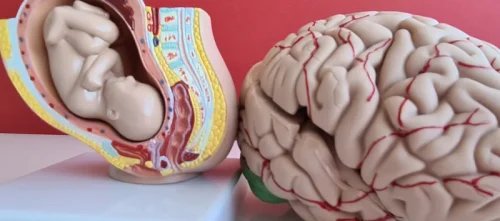Trusted Alcohol Detox Diet: 5 Superfoods for Your Recovery
Both eating disorders and substance use disorders have similar behavioral patterns, such as strong cravings and a lack of control over consumption despite negative consequences. People with bulimia or binge eating disorders, like those with substance abuse, have intense cravings and feel like they can’t stop during episodes of overeating. Both food and addictive substances become ways of avoiding or numbing unwanted feelings. By feeding our brains with the right foods, we can improve our neuroplasticity and enhance our cognitive abilities, mental health, and quality of life. Eating these healthy foods makes sure you have a balanced and supportive diet, helping your recovery journey with kindness and holistic well-being.
What to know if you’re a casual drinker
Eating a healthy diet and supplementing with vitamins as needed can help correct some of the damage from drinking. A healthy alcohol detox diet can help to set the person’s body up for recovery. Fruits and vegetables are nutritional powerhouses, high in fiber, vitamins and minerals, and low in calories. They can help the body repair damage caused by alcohol abuse by providing antioxidants, which fight against harmful free radicals produced during excessive alcohol consumption.

Teen Drug Abuse Stats
And the statement below from Recovery Dharma’s site perfectly captures the community’s mission. It can be hard to go to work events or spend time with colleagues outside of work when you don’t drink. Happy hour, holiday parties, hanging out after a long day— all of these things come with the expectation to drink. According to a 2023 Gallup study, 38% of Americans don’t drink at all. A North Carolina man in his late 40s was pulled over for what cops were convinced was drunk driving. He denied drinking despite a blood alcohol level of 0.2%, the equivalent of consuming 10 drinks an hour and about 2.5 times the legal limit.
Stay Away from Processed Foods

These conditions not only impact liver function but also contribute to protein-energy malnutrition and sarcopenia due to the altered metabolism and breakdown of proteins and lipids. This underscores the critical need for targeted nutritional interventions in individuals with alcohol use disorders to support recovery and improve prognosis. Some people may also need vitamin and mineral supplements, alcohol recovery diet something they can talk about with their physician or a nutritionist, Youdim says. Barriers to alcohol use disorder treatment include a combination of provider, patient, financial, and infrastructure factors. To address this, recent initiatives are enhancing education for both practicing and training providers through mandatory training programs and curriculum enhancements in medical schools.
Alcohol Detox Foods

While no one she knows has had alcohol levels reach that level, many people can function at blood alcohol levels of up to 30 millimoles per liter or 40 millimoles per liter, Cordell said in an email. People who have completed inpatient or residential addiction treatment often find that they continue to face triggers and stressors that challenge their recovery. Transitioning to an outpatient program or meeting with a therapist can help you continue to address these issues.
Steering Clear of Processed Foods
- Although staying hydrated in recovery is important, you should ask your doctor how much water is safe for you to drink.
- For those addicted to alcohol, a large portion of caloric intake comes from alcohol, not fruits, vegetables and protein, leading to weight gain and obesity.
- Your health care provider or mental health provider will ask additional questions based on your responses, symptoms and needs.
- A good alcohol detox diet is just one component of a supportive care plan for people who are detoxing from alcohol.
If possible, try to avoid foods that are highly processed or low on nutrients. Whole grains, protein, and generally nutrient-rich foods are the best foods for alcohol detox. By eating a balanced and varied diet that includes these nutrients, we can support our brain’s natural ability to grow and change. Nutrition can also help us prevent or delay the start of brain diseases, such as Alzheimer’s and Parkinson’s, which are characterized by the loss of neurons and connections. Moreover, nutrition can boost the effects of other things that promote neuroplasticity, such as physical exercise, cognitive training, and meditation. These are the vitamins and minerals that are needed in small amounts but play important roles in the regulation of brain metabolism, energy production, gene expression, and enzyme activity.
- However, there are plenty of healthy snack options that will best serve your needs while in early recovery.
- From there, they travel to other parts of your body and affect organ systems, including the cardiovascular, immune, and nervous systems, along the way.
- But food high in sodium can lead to a variety of health problems, including weight gain, high cholesterol, and blood pressure.
- Omega-3 fatty acids, amino acids, and antioxidants are key in promoting cognitive function and emotional well-being.
- This is why mass-produced breads and cereals are “enriched” with a few basic vitamins, which don’t even begin to make up for the opportunity costs of eating these foods.
- Explore the benefits of inpatient treatment, from 24/7 support to high success rates, for a solid recovery.
As we’ll discuss below, it’s best to avoid these types of food in order to keep your body as healthy as possible as it navigates withdrawal symptoms and recovers from alcohol. Before we get started, you might be wondering what causes alcohol withdrawal? When an individual consumes unhealthy amounts of alcohol over an extended period of time, their body can adapt to the depressive effects of alcohol, which slows down the central nervous system. When a person then stops drinking alcohol, their central nervous system can become hyperactive and dysregulated, leading to various withdrawal symptoms. Some of the most common withdrawal symptoms include anxiety, nausea, insomnia, and shakes. Other symptoms, like seizures and hallucinations, can be more severe and even life-threatening.



